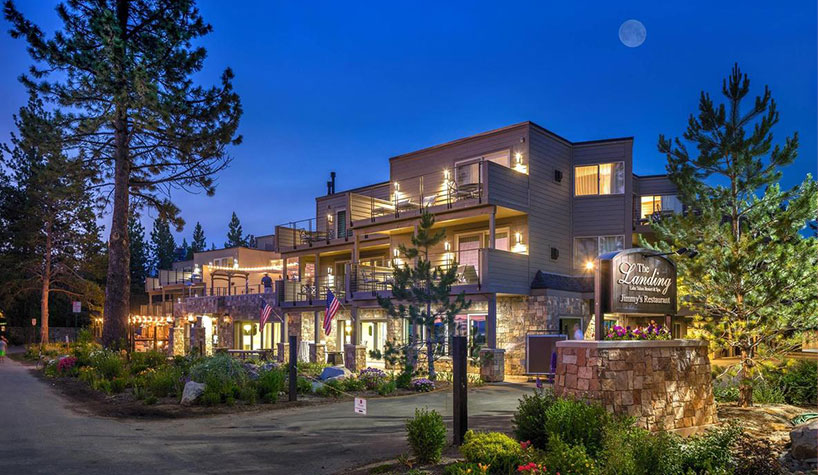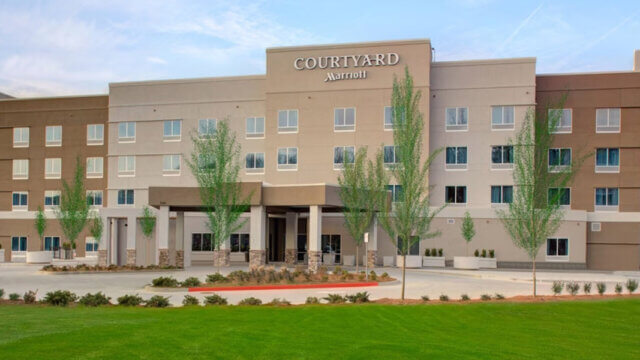BETHESDA, MD—DiamondRock Hospitality Company has revealed the results of operations for the quarter ended June 30, 2020.
“We made excellent progress in the quarter, reducing our cash burn rate, improving our total liquidity and reopening hotels for the eventual recovery,” said Mark W. Brugger, president/CEO of DiamondRock Hospitality Company, acknowledging that the second quarter was unlike any in the history of the hotel industry.
“In response to travel demand declining by over 90%, we suspended operations at 20 of our 30 operating hotels, leaving just 10 hotels open at one point in April,” he reported. “The quick action taken by the team allowed us to realize a 72% reduction in hotel-level expenses excluding wage of benefit accruals. Impressively, compared to the prior year, second quarter man hours decreased 83% at open hotels and 99% at hotels with suspended operations.”
Brugger called the decision to reopen hotels dynamic and data driven. “Our plan is to reopen hotels if we can lose less money doing so,” he said. “Accordingly, starting in May, we prioritized our drive-to resorts based on returning demand visible through various channels. And ultimately, we reopened a total of 12 additional hotels in the second quarter.”
The company had 22 hotels opened at the end of the quarter; they represent 58% of DiamondRock’s hotel rooms. Taking into account that the openings were staggered, 43% of rooms were available in the second quarter.
“Weekly occupancy for our operating hotels, which had bottomed at 6.8% at the end of March, rose steadily to 27.8% by the last week in June,” Brugger reported. “This trend has continued beyond Q2 with occupancy for operating hotels in July over 200 basis points higher than the full month of June. Over the course of the quarter, we saw a growing number of hotels achieve breakeven profitability, and we expect that this trend continued in July.”
For instance, he said, five hotels achieved breakeven profitability in April on a GOP basis, which grew to seven hotels in May and 10 hotels in June.
Brugger noted that July trends are encouraging. “The Shorebreak in Surf City Huntington Beach averaged nearly 50% occupancy in July,” he said. “Our L’Auberge de Sedona, Orchards Inn and Havana Cabana Key West each ran occupancy over 60%. L’Auberge actually had an average rate in July of $553, which was a 14% increase over the prior year. But our little star of the month was Landing in Lake Tahoe, which had 80% occupancy in July with average rate up nearly $100 a night to over $519.”
Brugger said much of the demand came from leisure travelers. “As for business transient, we are not expecting a significant recovery after this summer,” he said. “In fact, we do not expect a true recovery in business transient demand until folks return to the office, which appears drifting toward early 2021 for many major employers. Nevertheless, there are individuals traveling for business, and we did see a gradual improvement in our room and total revenue activity each month over the course of the quarter.”
The company saw less than $400,000 of revenue from business transient channels in April but this grew to $1 million in May and $2.5 million in June.
Long term, Brugger said the pandemic could have a positive effect on meetings demand. “As a consequence of more office personnel working from home, there may be an increase in hotel meeting activity to plan strategy, conduct training and foster corporate culture,” he said.
Jeff Donnelly, EVP/CFO, noted that the company has canceled or delayed more than 65% of its original capital expenditure plans. “In the second quarter, we restricted CapEx spending to only $20.7 million, including $8.5 million for Frenchman’s Reef to put the project in a position where we could pause work,” he said. “Our primary focus remains conserving capital, so we are prioritizing only those expenditures where we have high confidence that they can produce a near-term earnings benefit and high return on investment at minimal cost and complexity. In this regard, we spent $4.5 million to complete the F&B repositioning initiatives at our Renaissance hotels in Sonoma, Worthington and Charleston as well as the JW Marriott Cherry Creek. We expect these investments will be earnings contributors in 2021, and the average IRR is forecast to be over 30%.”
At the end of the quarter, DiamondRock had $364 million of total liquidity between corporate and hotel level cash and undrawn revolver availability. Donnelly noted that the total cash burn rate was approximately $17 million.
“Compared to our average pace in second quarter 2020, we expect our burn rate will improve slightly in July, mainly because we had 58% of our rooms open at the end of June as compared to only 43% during the quarter,” he said. “Our preliminary estimate for our hotel-level cash burn in July is approximately $9 million to $10 million, which is potentially $1 million or 10% lower than the average monthly pace seen in the second quarter. Including cash, G&A and debt service, this works out to an overall burn rate of $16 million to $17 million and provides a runway before CapEx of up to 23 months based upon our total liquidity of $364 million at the end of the quarter.”
“We have a solid balance sheet to allow us to withstand a substantial downturn and then position us to be offensive at the right time,” Brugger added. “We are already seeing some interesting opportunities in the market.”
Second Quarter 2020 Highlights
- The company suspended operations at 20 of its 30 previously operating hotels (which excludes Frenchman’s Reef) for at least some portion of the second quarter under governmental orders or due to lack of travel demand. The company now has 25 of its 30 operating hotels open.
- Net loss was $73.4 million and loss per diluted share was $0.36.
- Comparable total revenues decreased 92.1% from the comparable period of 2019.
- RevPAR decreased 92.8% from the comparable period of 2019.
- Adjusted EBITDA was ($37.0) million, a decrease of $118.1 million from 2019.
- Adjusted FFO was ($41.0) million and Adjusted FFO per diluted share was ($0.20).
- The company completed amendments to the agreements for its $400 million revolving credit facility and $400 million in unsecured term loans, which provided waivers of 2 financial covenants through the first quarter of 2021. The company also refinanced its only material near-term debt maturity, the mortgage loan secured by the Salt Lake City Marriott Downtown.
- As of June 30, 2020, the company’s liquidity was $363.9 million, composed of $87.8 million of unrestricted corporate cash, $25.1 million of unrestricted cash at its hotels and $251.0 million of capacity on the company’s revolving credit facility.




